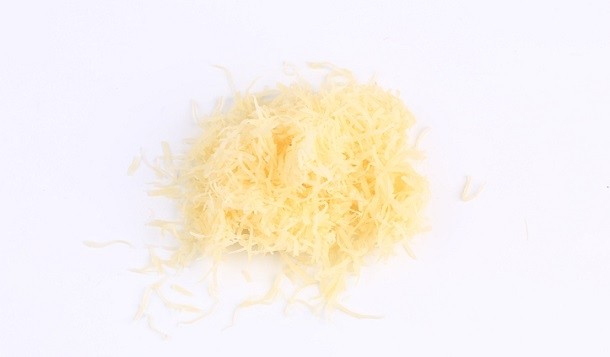Judge throws out '100% Grated Parmesan Cheese' lawsuit calling plaintiffs’ claims ‘doomed’

The plaintiffs include anyone who has purchased products labeled as “100% Grated Parmesan Cheese” believing that they contain only cheese.
“The products, however, contain not just cheese, but also anywhere from 3.8% to 8.8% cellulose, an organic polymer with no nutritional value that is ‘often used as a filler,’” plaintiffs stated in the court document.
Cellulose is an organic polymer often used in products such as grated shelf stable cheese as an anti-caking agent. The FDA allows other “optional ingredients” to be used in the grated cheese including antimycotics, anticaking agents, spices, and flavorings.
Some of the products cited in the lawsuit also contained other non-cheese ingredients such as potassium sorbate.
The plaintiffs’ also alleged that they overpaid for the grated parmesan cheese products because the front label misleadingly states that the product is 100% cheese, but they received something different, and less valuable, than what they were promised.
Plaintiffs’ claims are ‘doomed’
Defendants including The Kraft Heinz Company, Albertsons, Supervalu Inc., Target Corporation, Wal-Mart Stores Inc., ICCOCheese Company Inc., and Publix Super Markets Inc., who manufacturer, distribute, and market the grated parmesan cheese products. Defendants argued that the inclusion of its ingredient list clearly communicates there are other non-cheese ingredients.
“Plaintiffs’ claims are doomed by the readily accessible ingredient panels on the products that disclose the presence of non-cheese ingredients,” the court document stated.
In addition, the “100% Grated Parmesan Cheese” claim can be interpreted in at least three ways:
“Although ‘100% Grated Parmesan Cheese’ might be interpreted as saying that the product is 100% cheese and nothing else, it also might be an assertion that 100% of the cheese is parmesan cheese, or that the parmesan cheese is 100% grated.”
The defense added that any “reasonable” consumers would search for more information before concluding that the labels of a shelf stable cheese product promised only cheese and nothing more, and “they would know exactly where to look to investigate—the ingredient list.”
Plaintiffs also argued that the presences of shelf life in the product has no identifiable connection with the product’s shelf life and that reasonable consumers cannot be expected to understand the “intricacies relating to the shelf life and processing of.”
The defense refuted the plaintiff’s argument that while all consumers may not understand the details related to the processing of shelf stable products like grated cheese and the function of cellulose, they would suspect that something other than cheese might be in a container of unrefrigerated, shelf stable cheese.
US District Judge for the Northern District of Illinois, Gary Feinerman, granted the defendants’ motion to dismiss and has given plaintiffs until Sept. 14, 2017 to amend their complaints.
“If they do not do so, the dismissals will convert automatically to dismissals with prejudice, and judgment will be entered,” Feinerman said.
Case: Beverly Schulze, et al. v. Wal-Mart Stores, Inc., et al.
U.S. District Court, Northern District of Illinois Eastern Division, Aug. 24, 2017
1:16-cv-05802








